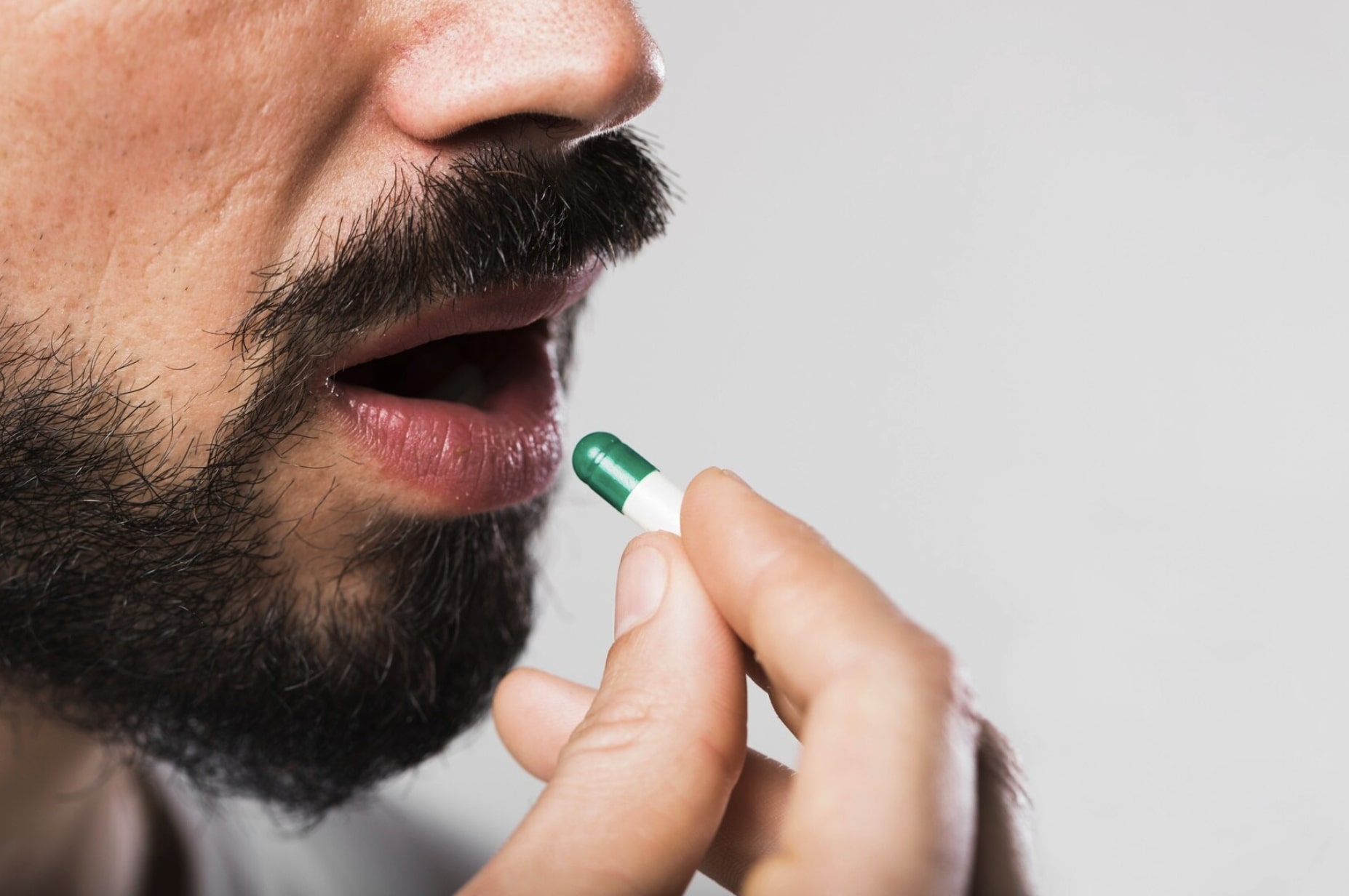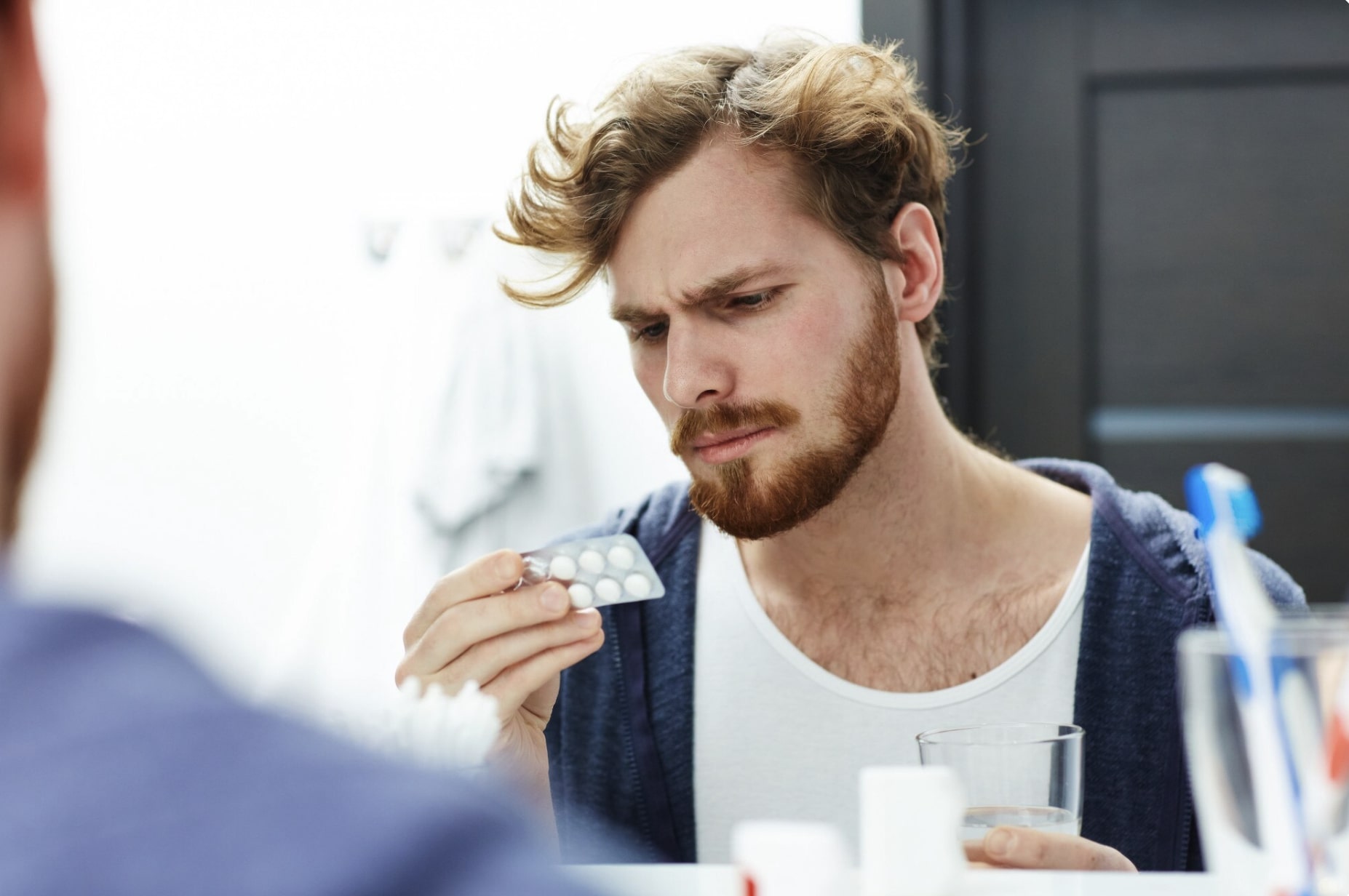Low energy. Loss of motivation. Mood swings. Many men chalk these symptoms up to stress or burnout. But when these issues persist, the root cause may be hormonal and not just psychological. Studies have shown that low testosterone can affect as much as 40% of men globally. (1) Low T affects much more than physical strength and libido. It also plays a key role in mental health, influencing mood, cognitive function, and emotional stability. (2) In this article, we’ll explore how low testosterone and depression are often intertwined — and why combining testosterone replacement therapy (TRT) with professional mental health counseling can provide the most complete pathway to recovery.
Understanding the Link Between Low Testosterone and Depression
Testosterone is more than just the hormone that drives male sexual health — it has a direct impact on the brain. Testosterone influences neurotransmitters like dopamine and serotonin, which regulate mood and emotional stability. When testosterone levels drop, it can throw your brain chemistry off balance.Men with low T often experience symptoms such as persistent fatigue, low sex drive, feelings of sadness or apathy, irritability, reduced motivation, and trouble concentrating. (3) Low T can also cause erectile dysfunction, hair loss, and reduced muscle mass, all of which can exacerbate depressive feelings or anxiety. (4)This cluster of symptoms mirrors what we typically associate with clinical depression. Research has shown that men with low testosterone are nearly 15% more likely to suffer from depressive symptoms than men with normal hormone levels. (5)
How TRT Can Help Alleviate Depression Symptoms
If testosterone deficiency is contributing to depression, then restoring hormone balance through TRT can be a game-changer. Studies have shown that testosterone treatment in men with low T was associated with a significant reduction in depressive symptoms, particularly in middle-aged and older men. (6)Testosterone Replacement Therapy (TRT) works by replenishing low levels of testosterone through prescribed treatments such as injections, gels, or pellets. This treatment doesn’t just boost energy and libido, it can also improve mental clarity, motivation, and mood regulation.Many men report dramatic improvements in the weeks after starting TRT, such as:
- Renewed sense of drive and purpose
- Sharper thinking and focus
- Better stress resilience
- Improved sleep quality
- Greater emotional stability (7)
TRT for depression isn’t a blanket solution, but when low T is a core part of the problem, hormone therapy addresses the biological foundation of mood disorders. The benefits of testosterone therapy often go beyond physical enhancements and can help make men feel like themselves again.
Why Counseling Matters Alongside TRT
While TRT helps correct the hormonal imbalance, it doesn’t automatically erase psychological effects and difficulties that have developed over time.Living with low testosterone can cause severe issues in your personal and emotional life such as strained relationships, self-doubt, and low confidence. Even after hormone levels improve, the mental health impact may linger. Counseling can help work through these challenges and has been shown to be particularly beneficial for men who are experiencing or have experienced low testosterone. (8)Counseling offers a safe space to process emotions, rebuild self-esteem, and learn coping strategies that reinforce recovery. It also helps address any underlying mental health issues, such as anxiety, trauma, or long-term depression, that may have been masked or intensified by low testosterone.
The Power of Combining TRT and Counseling for Better Outcomes
TRT helps restore the body’s internal chemistry, while professional counseling rebuilds and enhances emotional health and mindset. When used together, they offer a comprehensive recovery plan that tackles depression from both angles.Men who engage in both medical and psychological treatment often report faster and more complete improvement. They tend to:
- Experience a faster lift in mood and energy
- Reconnect more easily with partners, friends, and family
- Regain confidence and motivation at work and in daily life
- Develop long-term strategies to maintain mental and emotional health
When it comes to testosterone and mental health, there’s no one-size-fits-all fix — but combining TRT with counseling offers a smart, strategic path forward.
How to Start: Addressing Low Testosterone and Depression Together
Step 1: Get Your Testosterone Levels Tested
Start with a simple blood test to evaluate your testosterone health. If you’ve been dealing with fatigue, low motivation, or mood changes, this is the first step to identifying whether low T could be a contributing factor. Get tested today with Gameday Men's Health.
Step 2: Begin TRT if Appropriate
If your results show that you’re testosterone-deficient, your provider may recommend starting TRT. The right dosing method will depend on your lifestyle, health goals, and lab values.
Step 3: Engage in Counseling
Even as your hormones begin to balance, working with a mental health professional can help accelerate your recovery. This is your chance to explore the emotional impact of low T and build new mental resilience.
Step 4: Monitor Physical and Mental Progress
As treatment progresses, track not only your physical symptoms but your emotional changes too. Regular follow-ups help ensure that your TRT is working effectively and that your mental health is improving in tandem.
How Gameday Men’s Health Helps Men Regain Their Strength and Confidence
At Gameday Men’s Health, we understand that true wellness is more than physical. We offer personalized testosterone therapy options that are tailored to each man’s individual hormone profile, symptoms, and lifestyle.Our process includes:
- Expert hormone testing and interpretation
- Customized TRT protocols using high-quality medications
- A focus on restoring energy and improving overall well-being
Low Testosterone and Depression: Why Treating Both Mind and Body Matters
If you’ve been struggling with low mood, irritability, or lack of motivation, it’s time to take action. Testosterone and mental health are closely linked, and when hormone levels are off, mental wellness has been proven to also suffer. (9)However, there is a path forward to a brighter future. Combining TRT with professional counseling allows you to address both the root cause and the emotional impact of your depression and low testosterone. This powerful combination works to speed up recovery and help you feel stronger and more energized.Ready to feel like yourself again? Start by getting your testosterone levels tested and taking charge of your total health, body, and mind.References
- Testosterone deficiency in adults and corresponding treatment patterns across the globe
- How Low Testosterone Affects Your Mental Health
- Low Testosterone in Men
- Testosterone
- Increased Incidence of Diagnosed Depressive Illness in Hypogonadal Older Men
- Association of Testosterone Treatment With Alleviation of Depressive Symptoms in Men
- Testosterone Replacement Therapy (TRT)
- Counselling for Testosterone Therapy in Mid Life Men
- The Relationship Between Hormones and Mental Health











